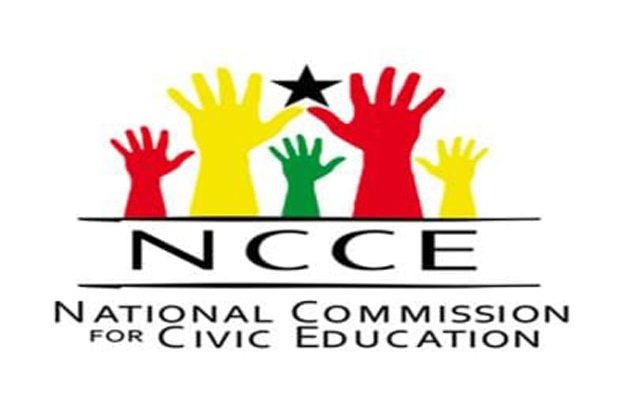Ghanaians Ready To Fight Corruption — NCCE Report
Many Ghanaians are becoming aware of their constitutional and civic rights and responsibilities to help fight corruption in the country as a result of a heightened public education by the National Commission for Civic Education (NCCE) as well as pluralisation of the media.
Report of a survey conducted by the Research, Gender and Equality Department of NCCE says that there have been significant changes in citizens’ perception and understanding on corruption, public accountability and environmental governance.
The survey by the NCCE was carried out in August, 2020 randomly covering 4,220 respondents in 108 selected districts across the 16 regions of the country.
The survey is part of NCCE’s efforts to support Ghana’s drive to achieve Goal 16 of the United Nations’ Development Goals which talks about member countries achieving substantial reduction of corruption and bribery in all their forms and the need for nations to develop effective, accountable and transparent institutions at all levels.
“It appears that the anti-corruption programmes organised by NCCE and messages on environmental governance including the fight against illegal mining have been disseminated well to the population. This is because the study observed a decrease in engagements of acts of corruption among study participants as well as engagements in illegal mining activities,” the study said.
According to the study, the understanding of corruption of most Ghanaians is bribery, embezzlement and fraud, which they believe occur most in institutions providing social services.
“In both baseline and end-line studies, bribery was found to be the most common act of corruption witnessed by study respondents. Additionally, it was found to be common among state institutions that provide social services. The study, therefore, recommends that institutions that are mandated by law to tackle corruption in Ghana should strictly monitor or supervise social service provision institutions to reduce the act of bribery in the country,” the study pointed out.
The respondents also said that they knew the Commission on Human Rights and Administrative Justice (CHRAJ) as the institution mandated by law to prosecute persons engaging in acts of corruption contrary to the commission’s constitutional mandate.
“Generally, the study found out that participant’s knowledge of public accountability structures and mechanisms were low from both baseline and end-line studies, especially for the national level structures (Public Accounts Committee). The study therefore recommends that the Public Accounts Committee of Parliament should engage more media outlets in disseminating their activities.”
The study also recommended that the oversight Ministry for Local Government should ensure that Metropolitan, Municipal and District Assemblies (MMDAs) publish their accounts and take steps to enhance the visibility of the publication.
According to the study, the issue of poor sanitation arising primarily from indiscipline is the main environmental concerns of Ghanaians when it comes to environmental issues.
The study recommended that “the Environmental and Sanitation Department of the MMDAs should spearhead the enforcement of sanitation bye-laws, monitor citizens behaviour and attitude to improve sanitation in the country. It is also recommended that waste management institutions within the assemblies should improve upon their service delivery.”
According to the study, a section of Ghanaians also attributed their environmental concern to the global pandemic of COVID-19, although the study could not establish a clear relationship between the two.
“It is therefore necessary, for future studies to explore the relationship between COVID-19 pandemic and environmental governance,” the study indicated.
Through the study, the NCCE also found out that the commission needed to carry out its future public educations through the traditional media outlets since they have wider coverage compared to other media platforms because majority of the respondents said they got to know about NCCE’s activities through the traditional media particularly TV and radio.
By Thomas Fosu Jnr


